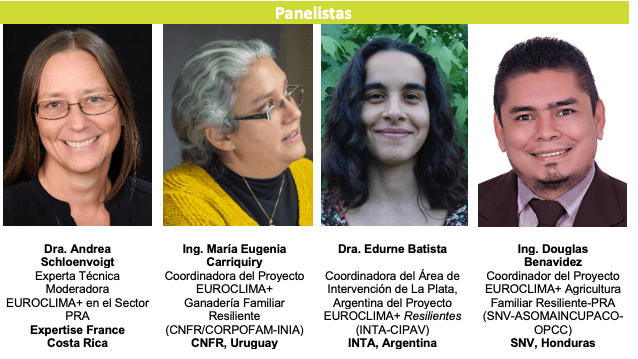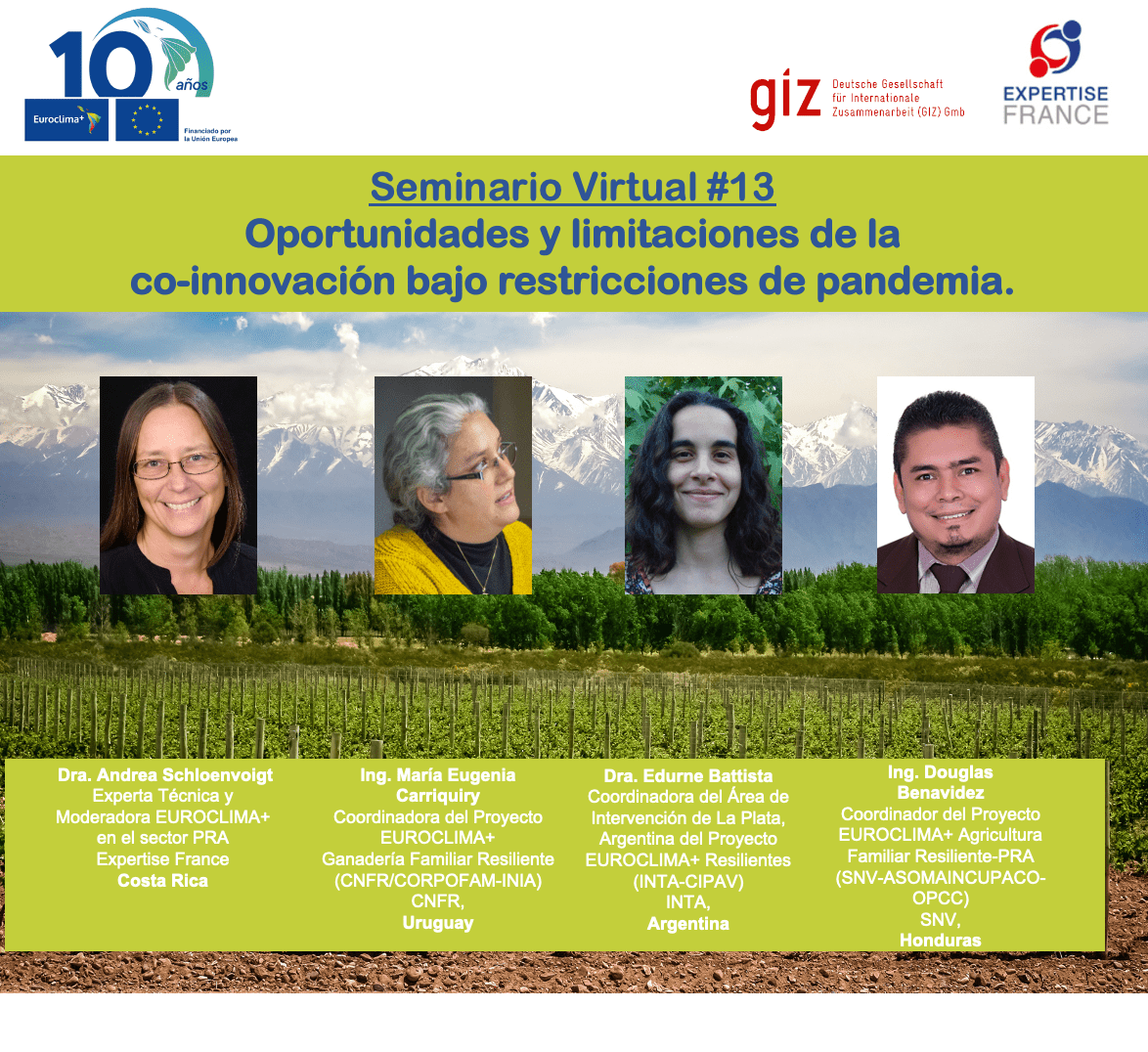This seminar highlights the importance of co-innovation of best practices in the agro-food sector, implemented by EUROCLIMA+ supported projects since 2019/20.
The co-innovation approach is highly participatory and involves different actors at different levels of cooperation; finally, to strengthen the resilience of vulnerable populations to the adverse effects of climate change in Latin America. In the pre-COVID-19 pandemic period, it was the norm to plan and implement agricultural development projects with training measures, consultancies, and face-to-face exchanges. The COVID-19 pandemic put a stop to this successful routine of the past.
The speakers summarise three experiences of multi-country projects focusing on family farming or livestock production, with examples from Uruguay, Argentina and Honduras. It analyses co-innovation as part of the project's intervention strategy, the implications of the pandemic for stakeholder cooperation, the usefulness of the project's organisational structure in responding to the necessary changes, the lessons learned as an implementation team, and an example of an adapted process that allows maintaining co-innovation under the restrictions of the pandemic.

Between September 2019 and November 2020, this series of virtual seminars facilitates multisectoral exchange among the key actors of the EUROCLIMA+ programme to promote the strengthening of technical and methodological capacities based on experiences that the programme generates through its technical assistance and project implementation in the countries. The conference participants work not only in the food production sector, but also in related sectors such as forests, biodiversity, and climate disaster risk reduction. This way, the experiences of the organisations executing projects supported by EUROCLIMA+, other key actors of the programme, strategic partners and specialists are taken advantage of. It is addressed to the key actors of EUROCLIMA+ and, in addition, to any interested public.
The EUROCLIMA+ programme promotes policy dialogues and provides technical and financial support for the development and implementation of climate change adaptation and mitigation policies in cooperation with 18 Latin American countries in the context of the implementation of their Nationally Determined Contributions (NDC) to the Paris agreement of the United Nations Framework Convention on Climate Change (UNFCCC). In the resilient food production (RFP) sector, through 10 multi-country projects implemented by public sector and civil society organisations, the programme has direct impact in Argentina, Bolivia, Brazil, Colombia, Ecuador, El Salvador, Guatemala, Honduras, Panama, Peru and Uruguay.
Along with projects and actions in other sectors, EUROCLIMA+ is generating complementary experiences that aim to support the scaling up of best practices for water, soil and biodiversity management; prevention of hydrological risks; inter-institutional articulation, gender mainstreaming, and a trans-generational approach, to support the implementation of NDCs through development plans; financing mechanisms for family agriculture; or monitoring and reporting on adaptation and mitigation. The scope of NDCs in the RFP sector benefits from an integrated approach to agriculture, forests and other land uses (AFOLU).
With this series of virtual seminars, some experiences prioritised in the context of the programme are compiled and made available on the EUROCLIMA+ programme website through videos of the webinars, PDFs of the presentations, and technical notes summarising the contents of each event.
See the presentation of Eng. María Eugenia Carriquiry
See the presentation of Dr. Edurme Batista
See the presentation of Eng. Douglas Benavidez
See the video of the webinar:
